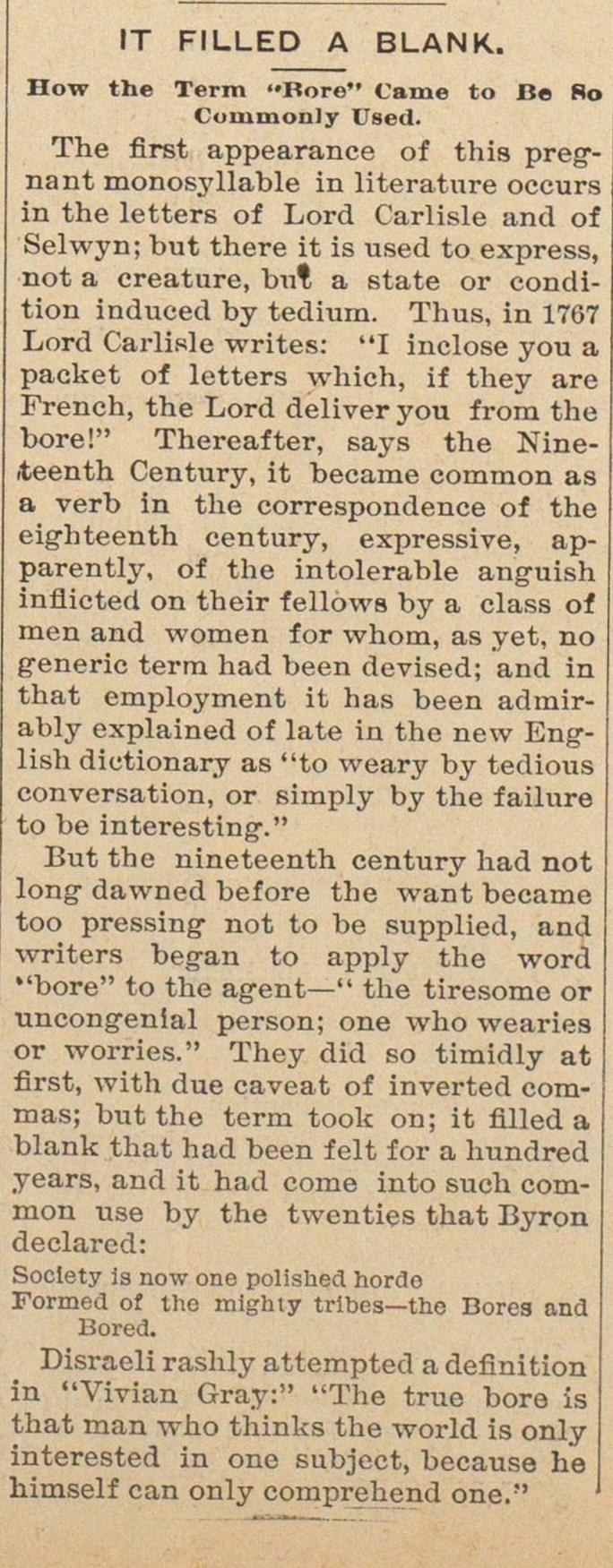It Filled A Blank

The first appearance of this pregnant monosj'llable in literature occurs in the letters of Lord Carlisle and of Selwyn; but there it is used to express, not a ereature, but a state or condition induced by tedium. Thus, in 1767 Lord Carlisle writes: "I inclose yon a packet of letters which, if they are French, the Lord deliver you from the bore!" Thereafter, says the Nineiteenth Century, it became common as a verb in the correspondenoe of the eig-hteenth eentury, expressive, apparently, of the intolerable ang-uish inflicted on their fellóws by a class of men and women for whom, as vet, no g-eneric term had been devised; and in that employment it has been admirably explained of late in the new English diutionary as "to weary by tedious conversation, or simply by the failure to be interesting-." But the nineteenth century had not davvned before the want became too not to be supplied, and writers begaan to apply the word "bore" to the agent - " the tiresome or uncong-enial person; one who wearies or worries." They did so timidly at first, with due caveat of inverted eommas; but the term took on; it filled a blank that had been feit for a hundred years, and it had come into such common use by the twenties that Byron declared: Society is now one polished hordo Formed of tho mighiy tribes- the Bores and Bored. Disraeli rashly attempted a deflnition in "Vivian Gray:" "The true bore is that man who thinks the world is only interested in one subject, because he himself can only comprehend one."
Article
Subjects
Old News
Ann Arbor Courier